Professor dedicates R&B degree to Black music
Professor Raney M. Antoine sits in Studio A in Loyola’s Communications/Music Complex on October 12th, 2021. Professor Antoine is responsible for creating the Hip-hop and R&B department at Loyola.
Raney Antoine, a Loyola professor and alum, is aiding in spearheading the new Bachelor of Science in Hip Hop and R&B major offered at Loyola. Antoine said he is dedicated to doing it “for the culture.” He emits the concepts of culture, music, community, and art passionately in every aspect of his life from professor to producer.
A New Orleans native, Antoine grew up with music surrounding him. His love of music flourished playing drums and piano in his father’s church. He reflected that this love evolved in middle school when he was exposed to a genre different from the Gospel he was raised around: R&B. While church is his roots, R&B is his love. With church being a foundation in Antoine’s early life, it sparked his mission of using his power as an artist and professor to spread the culture.
His commitment to his craft led him to study at Loyola in the Music Industry Department, where he believes he received the necessary tools to be successful in the industry. But, Raney admits that there were no professors that made gospel, hip hop, or R&B music during his time as a student. He did not see this as a deficit at the time. Rather, he reflects fondly on his time in the department. He recalls adapting, thinking “let’s learn the craft of music and music technology and make it work for what we do.”
The hands-on approach of the Music Industry department, the foundation of the degree aided Antoine in understanding the work of someone in the industry. He reminisced on a memory with Professor John Snyder, who took Antoine and a few peers to Dockside Studios in Lafayette, while he worked on producing an album. Antoine admits that this was the first time that he saw his professor in a new light. “It wasn’t Professor Snyder. It was John being a producer,” he said.
After Loyola, Antoine was given the opportunity to be a talent music teacher for Jefferson Parish Public School system at Haynes Academy, where his love of music shifted. “Teaching made me think about music through somebody’s perspective other than mine,” he said. He reflects on having to break down music and make it digestible, where it did not seem like it was “an elitist idea, this complicated method of expression,” he said. “Music is expression, and however you do it is how you do it.” His mission of equity in music education continues in the R&B department at Loyola.
Antoine returned to Loyola to work on building the Bachelor of Science in Hip Hop and R&B from the ground up, after six years in the public school system. The groundbreaking Bachelor of Science in Hip Hop and R&B is the first of its kind. Loyola is the only university in the world that offers this unique degree program. The concentration was “definitely a missing link in the Music Industry Program,” said Antoine. His main goal is making sure the culture is felt within the department and to do it equitably, meeting students where they are.
Antoine aims to continue to expand the department with time. He wants to make sure his students get equity in their education, and he asserted that equity is tangible. “You feel it useful,” he said. His opportunity to bring the culture into the curriculum is something that he feels passionate about, and he does not take that impact lightly. As he described the plans for the program, his explanations contained passion and energy, bringing life to this new Bachelor’s degree. Antoine reflected on a moment when he felt the culture’s presence the night before our interview. At the end of Ensemble, a soul train line broke out in Room 421 spontaneously. “That is classic blackness right there,” he said emphatically.
“In Western culture, academia is responsible for a lot of preservation of discipline, information, things like that. The curriculum we write and develop is a part of the preservation of Urban culture, of Black culture, of Black American music, is incredible,” he said proudly.
Outside of the academic setting, Antoine has made a tangible impact through his art as well. In 2020, the Smith Group, associated with the National Museum of African American History and Culture in Washington, D.C. reached out to him to compose a piece for their architectural installation called “Society’s Cage” reflecting oppression of Black people through racial lynching, police brutality, mass incarceration, and capital punishment. His soundscape, “8:46” accompanied the installation, as it debuted in Washington, D.C. on the anniversary of the March on Washington in 2020, at a highly charged time in America. Antoine said he felt grateful that he could “bring light to the ugliness that people don’t talk about, but in a beautiful way.”
Antoine reflected on how he wants to be impactful with his art. “Breonna Taylor protests were coming by [at the National Mall]. They were waving her flag- that’s exactly what I wanted, to be a part of something bigger than me. For the culture. Then the opportunity to come to Loyola and build a Bachelor of Science in Hip Hop and R&B, the first of its kind in the world is another moment to do it for the culture.”

Ella Cheramie is a junior from New Orleans studying English Writing with a double minor in Social Media Communications and Theatre at Loyola University...
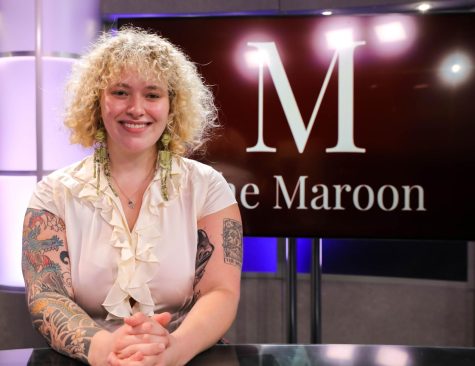
Gabrielle Korein is a Mass Communication senior who is passionate about writing, photography, and videography. Gabrielle has spent over 7 years as a freelance...


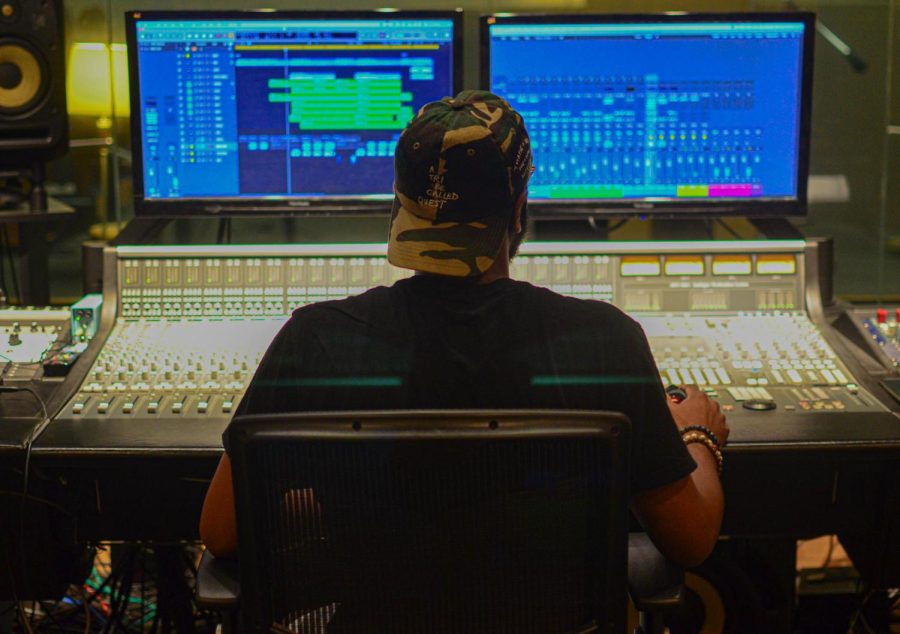
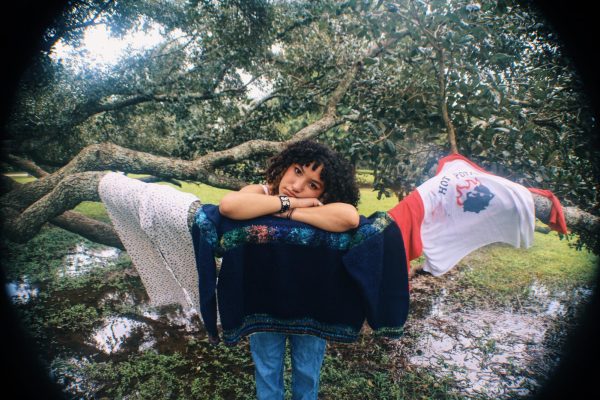
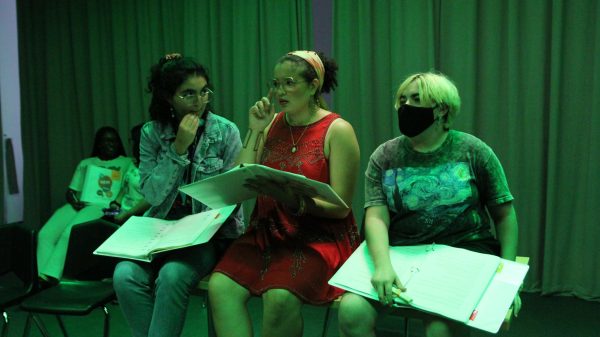
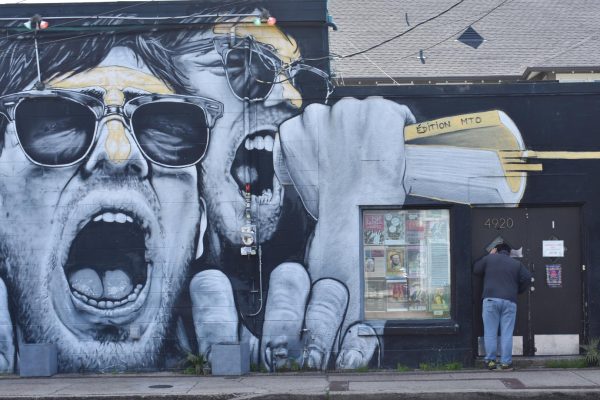
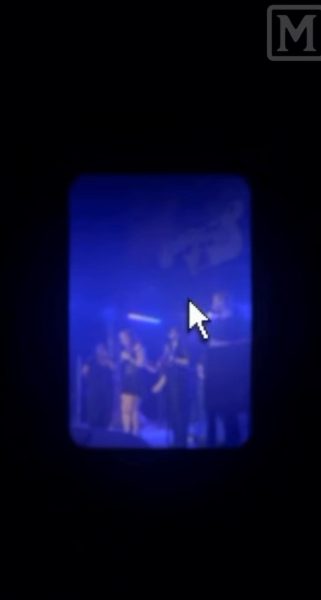

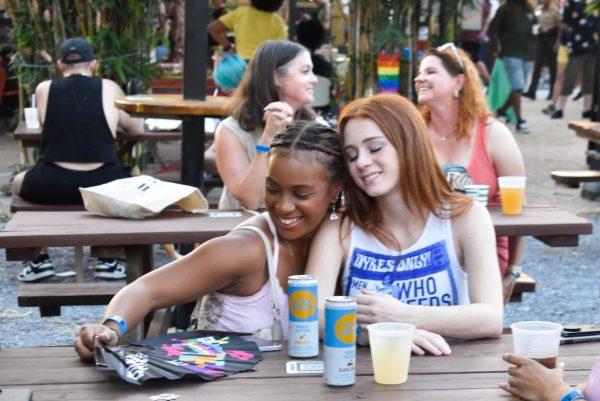
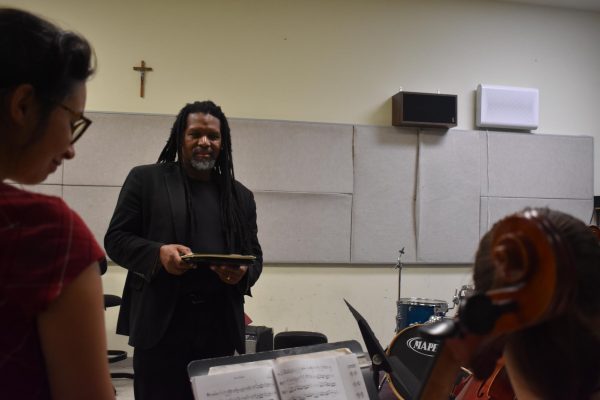
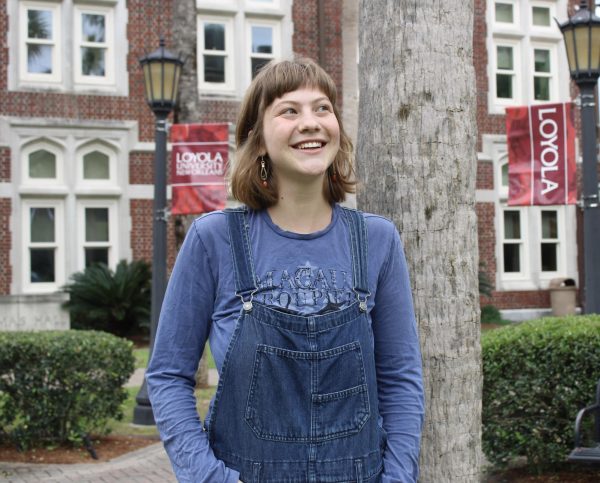
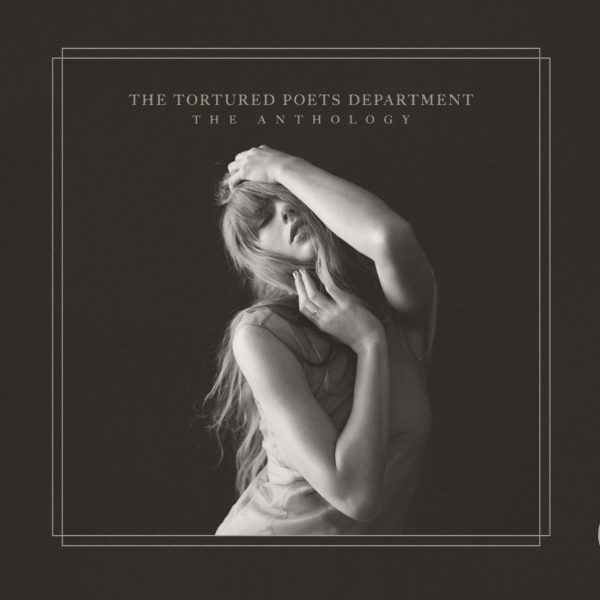
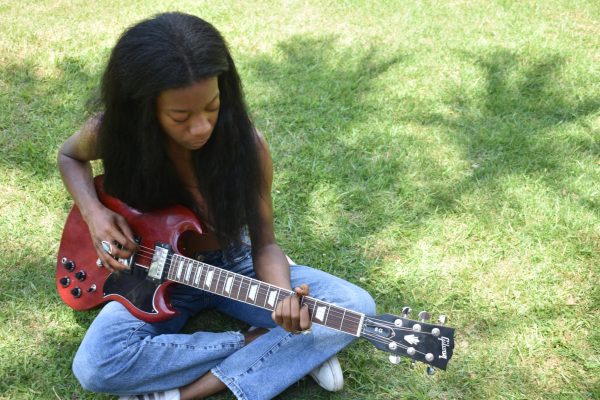
Louis • Nov 5, 2021 at 2:34 pm
Having enjoyed his playing over the years, it’s no surprise his talent would continue to grow & inspire others !! Congrads 👏👏👏👏